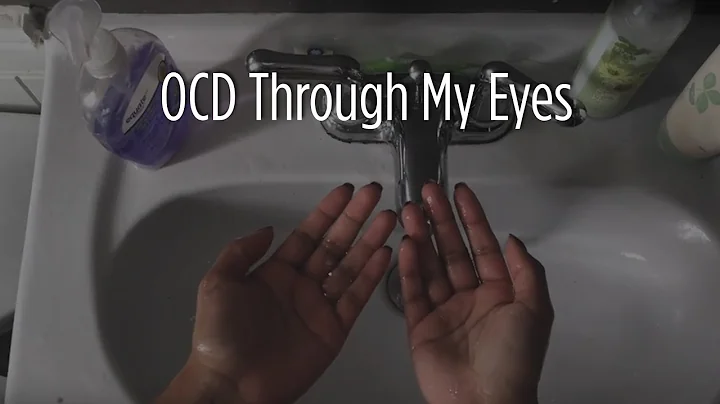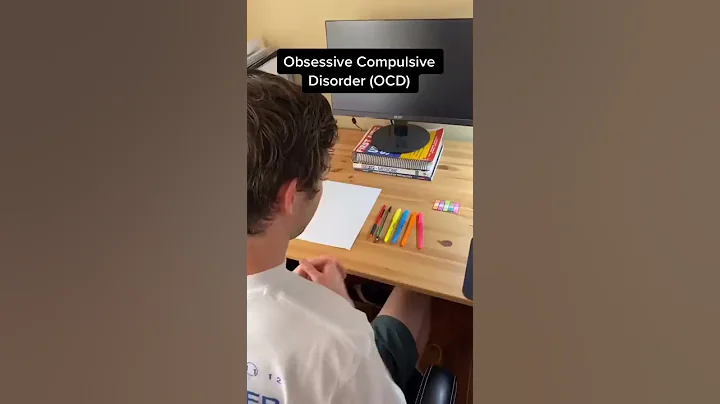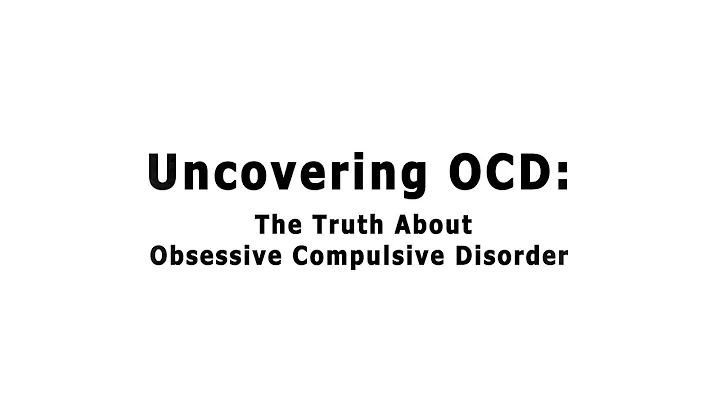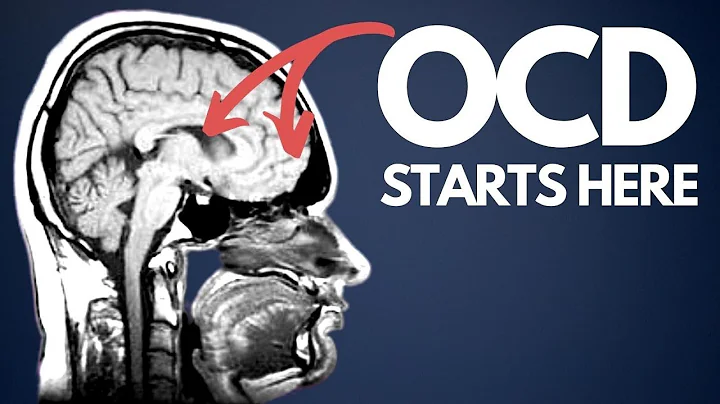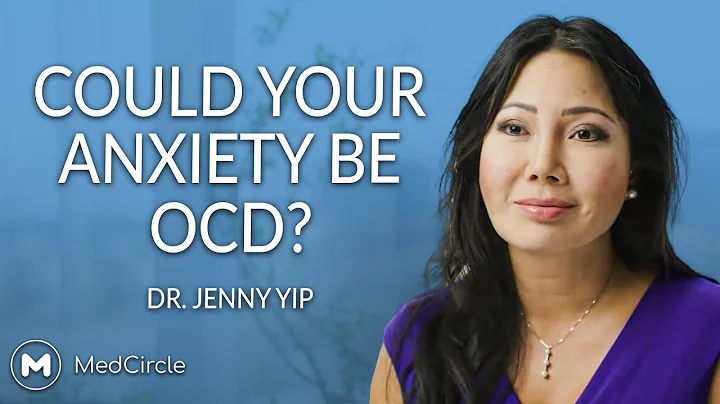Obsessive-compulsive disorder patients worry about many things, such as whether the car door is locked after parking? Is the gas at home turned off? We wash our hands repeatedly when encountering dirty things for fear of getting sick... These compulsive behaviors affect our daily lives. what do I do? Next, the editor will tell you 3 ways to help you get rid of it!

1. Let it develop naturally
Let nature take its course means following the laws of nature that are independent of human will and conforming to one's truest psychological state. People with obsessive-compulsive disorder often have a complex of pursuing perfection, so when they have some uncomfortable psychological experiences, they will not admit or accept these thoughts, and try to artificially get rid of them in a way to protect themselves from pursuing perfection.
But it can only be counterproductive, and the result of doing so will often aggravate the symptoms of the disease. On the contrary, if we regard this uncomfortable emotional experience as a rule, comply with it, and do not try our best to eliminate it, the treatment of obsessive-compulsive disorder will naturally be successful.

For example, if the behavior of repeatedly closing the door is treated naturally: the patient always closes the door more than ten or twenty times and still doubts that he has closed the door well, then there will be two overall thoughts. Is the first one unsafe? Will it hurt myself? This is excessive self-protection. Second, I felt anxious about my unusual behavior when closing the door.
During treatment, the patient is allowed to let nature take its course. If you want to close the door, you can close it as many times as you want until you get tired of it. Don't think about your actions when closing the door. The basis for this is that the compulsion comes from the subconscious mind. Because the patient has been suppressing bad things subconsciously, the subconscious needs energyless venting when it can't bear it, and it manifests itself through some abnormal behaviors, so the obsessive-compulsive symptoms are stimulated, so what needs to be done is to let nature take its course without adding any extra force. inhibition.
is like a spring, the more you press it, the higher it jumps. In other words, if the patient can give up the struggle with the subconscious, get along well with his obsessive-compulsive disorder, and leave when he wants to implement it, he will naturally stop making trouble. Of course, this method of treating OCD is best combined with medication and psychological counseling.
2. The "three no's" rule

1. Don't be afraid of it
Many people are always afraid of the emergence of obsessive-compulsive disorder. In fact, this situation occasionally happens to normal people, but the person involved doesn't care. But patients with obsessive-compulsive disorder are afraid of the recurrence of this kind of thinking, so the more afraid they are, the more they will appear, and the more they appear, the more nervous they will be, constantly strengthening and consolidating this awareness.
Why don't ordinary people become sick, but people with obsessive-compulsive disorder do? The reason is a character flaw at play. Therefore, for obsessive-compulsive disorder, patients must first change their thinking. That is, everyone has had these thoughts, and so have I. I am as normal as everyone else. In this way, you can gradually build up your self-confidence. With this support, we can withstand the "paper tiger" of obsessive-compulsive disorder, fight it, and defeat it.
2. Ignore it.
Why do many patients struggle with obsessive-compulsive disorder for many years but cannot overcome it? The reason is that we cannot let nature take its course. For example, obsessive-compulsive disorder is like hitting a ball. The beating of the ball represents pathological thinking. So, how do you make the ball stop, meaning the symptoms go away? The answer is to stop hitting the ball and the ball will stop. The same goes for obsessive-compulsive disorder. Only if the patient ignores its existence will the symptoms slowly disappear.

3. Ignore it.
After initial treatment, the symptoms of obsessive-compulsive disorder in some patients will be greatly reduced or even disappear for a long time. At this time, he may be thinking, the symptoms have not appeared for a long time, will they appear again? Thinking this way, the symptoms of obsessive-compulsive disorder really appear, bringing with them a new wave of fears and obsessive thoughts. This back and forth is normal.
The attitude we advocate is love comes or doesn’t come! I'm not afraid of you when you come! Every time it recurs, use the above-mentioned "three no's" strategy to deal with it, gradually understand its "temper", and master effective treatment methods.
3. Catharsis
Experts have found that most people who are good at eliminating unpleasant emotions can maintain physical and mental health and will not get sick. When it comes to specific ways to vent, yelling, cursing, and complaining are all good options.For example, patients who are forced to bear inner unhappiness for a long time will become depressed, anxious, angry, often quarrel with family members, and abuse others. In fact, these are their ways of venting their inner emotions. And this method has a special category in psychology - cathartic therapy.

Cathartic therapy is a simple, easy-to-understand and effective form of psychological therapy. Making noise and swearing are among the outlets for language and activity. Through these extreme methods in the eyes of others, people will vent their bad emotions in time, people will feel extremely relaxed, and the original uneasiness will disappear. This can avoid a series of psychological problems such as compulsion, anxiety, and fear caused by bad emotions.
In short, when negative emotions occur psychologically, you should vent them in time, especially for patients with obsessive-compulsive disorder. Ways to vent, such as swearing, yelling, causing destruction, etc. , as long as it makes us feel comfortable, we can use it. Of course, an individual can also consult a doctor about the most suitable way to vent.
[Note: The information and pictures used in this article are from the Internet and literature, and are only used for the popularization of medical knowledge. If there is any infringement, please contact us for deletion]
![Do You Know a Perfectionist? Watch This. [New Personality Disorder Series] - DayDayNews](https://i.ytimg.com/vi/4ZCU_RxyCiY/hq720.jpg?sqp=-oaymwEcCNAFEJQDSFXyq4qpAw4IARUAAIhCGAFwAcABBg==&rs=AOn4CLBlWdwWD_g5XkQXNH_kPQi1o_wSEg)
![Do You Know a Perfectionist? Watch This. [New Personality Disorder Series] - DayDayNews](https://cdn-dd.daydaynews.cc/img/play.svg)

